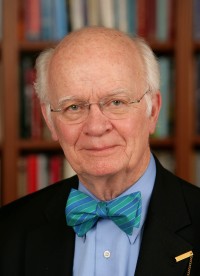Call me Nestor: A brave, garrulous character
Have your ever played a game in which participants identify themselves with an animal, biblical figure, athlete or Greek hero, and others try to guess the connection? I learned how hazardous this can be not because of the hero I chose but because someone identified me with one.
In the New York Times (August 19) columnist (and friend—I think!) Peter Steinfels called me “the Nestor of American religious historians.” In prep school I read the Iliad and the Odyssey in Greek, but I have to confess that I needed to be reminded about Nestor. A Google search turned up millions of references. Several of his various traits can be put on the plus side. “He was noted for his bravery and speaking abilities” and for giving advice to younger warriors. Bravely, I soldier on with other references: though too old to engage in combat, Nestor went riding into battle. That too, though only figuratively, still works for columnists. “He also had a solid gold shield.” So did I. It’s called academic tenure.
As for the not inaccurate downside—did Steinfels have this in mind?—Homer now and then gibes Nestor for his “garrulous, long-winded exposition of his own past glories.” I thought no one had noticed. And, say the classical dictionaries, while Homer admires Nestor—that’s good!—he also engages in humor at Nestor’s expense: “Homer never actually calls Nestor a bore, but the reader is left with the impression that Homer considers him a bore nonetheless.”
In still other references Nestor is presented not as a ridiculous figure but as a paradigmatic one. That adjective ought to stand me in good stead among academics. While moderns may think Nestor is irrelevant to the Homeric plot, some critics say Nestor is actually the motor for it, and that his wind-baggy stories often induce other characters to perform. Even when Nestor fails in his purpose, or his characters fail, he still brings order to the story and to the ancient scene.
Since my Great Books version of Homer is too high on the shelf to be reached easily, I consult Cliffs Notes: “Nestor’s tales enrich the epic with stories of the past that connect the past to the present and reveal a continuity of Greek life and hence Greek literature. . . . Nestor becomes the transmitter of memory.”
If that is what Steinfels had in mind, then this old, garrulous paradigmatic sort will take the Nestor identification as a compliment and will try to motivate others to play the game of identifications. In it, we find that nobody’s perfect—something that Greek heroes did not always know, but columnists do.






